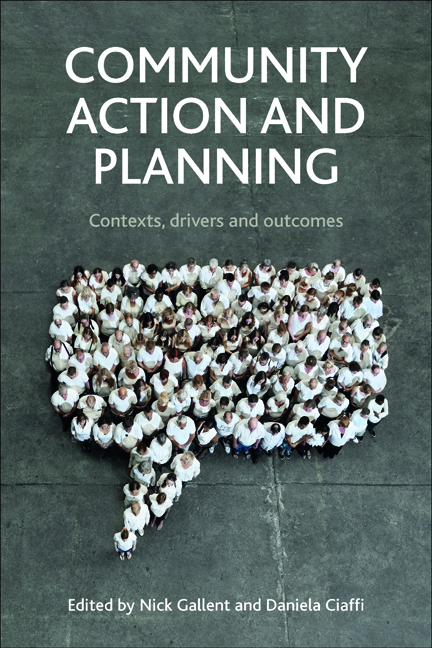Part 3 - Planning at the community scale
Published online by Cambridge University Press: 04 March 2022
Summary
In the life-cycle of community action, the act of planning – or the broader tendency to become future-orientated – is not automatic. The actions that communities take may be time-limited, restricted to a specific response to a particular set of circumstances: to crises and immediate needs, or the need to provide a specific service over the longer term. The prioritisation of planning requires community groups to recognise the longer-term pressures that are faced and the possibility that, through the articulation of collective vision and will, those pressures can be mitigated or opportunities grasped. It is also the case that time-limited mobilisations are easier to sustain than longterm efforts, and that such efforts need to be framed within structures of informal community activism or formal community governance. Communitarian planning of the type described in Chapter 1 needs to be embedded within community processes, although it can be seeded by the state, with a distinction then drawn between ‘communitarian planning as a by-product of community life (with its focus on social goods) and (implanted or hijacked) community planning as a product of the state's search for legitimacy – through extended interaction that delivers a less contentious vision of “what urban change should be like”’. The six case-studies contained in this Part of the book examine examples of both.
We begin in the Netherlands where van der Pennen and Schreuders contrast the ‘life world’ inhabited by communities with the ‘system world’ of bureaucracy and the local state. The Dutch New Towns, constructed in the 1950s onwards, provide a context for a coming together of these worlds. Faced with physical deterioration and the need for renewal, residents encounter the slow, incremental and constricted system world of public policy. They become frustrated and attempt to change their environment on their own terms and at their own pace. They take control and begin to lead key projects, but their capacity to do so is heavily influenced by the social characteristics and capacities of their communities, and dependent on effective community leadership. The state, for its part, embraces community action as another tool in its armoury of public policy delivery; though that action is, for the most part, a by-product of community life.
- Type
- Chapter
- Information
- Community Action and PlanningContexts, Drivers and Outcomes, pp. 131 - 134Publisher: Bristol University PressPrint publication year: 2014



